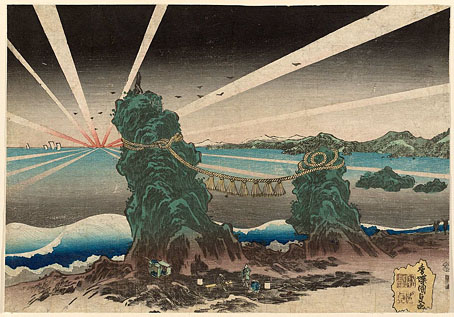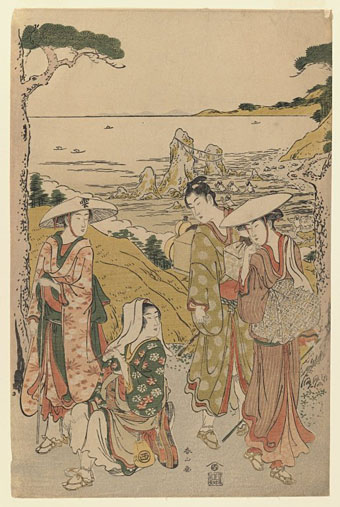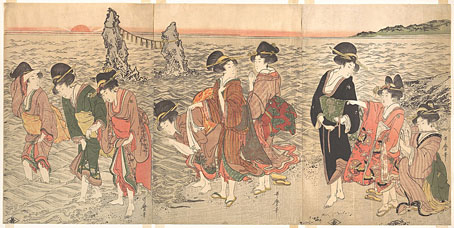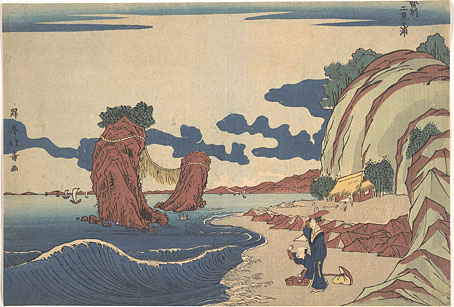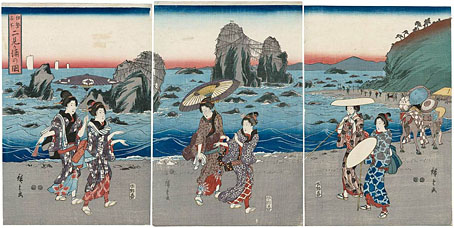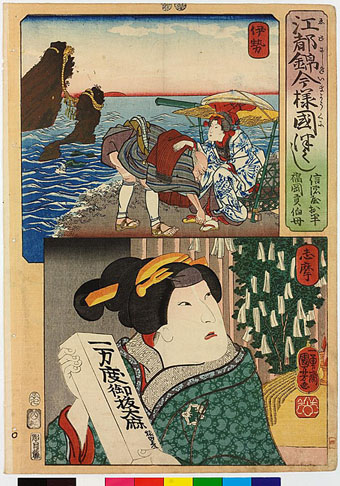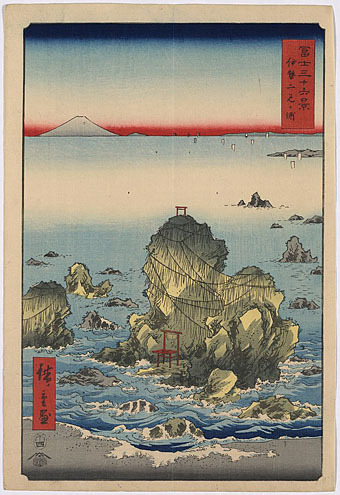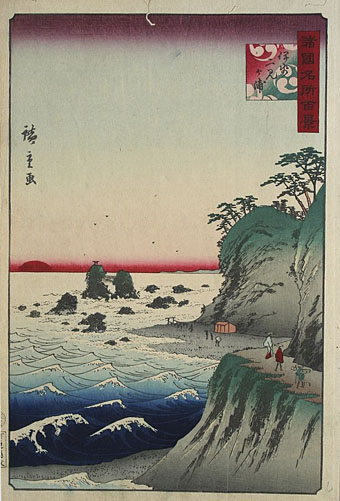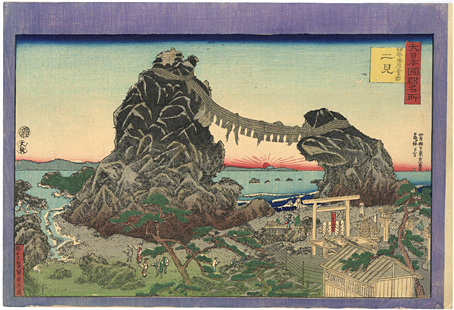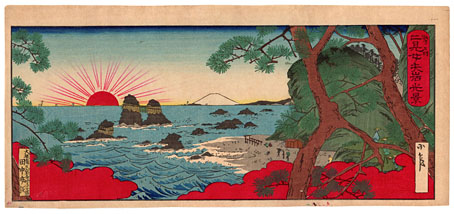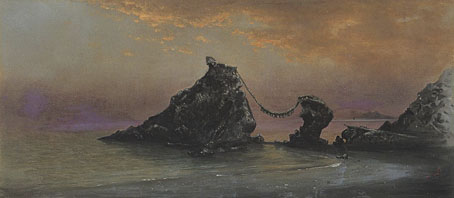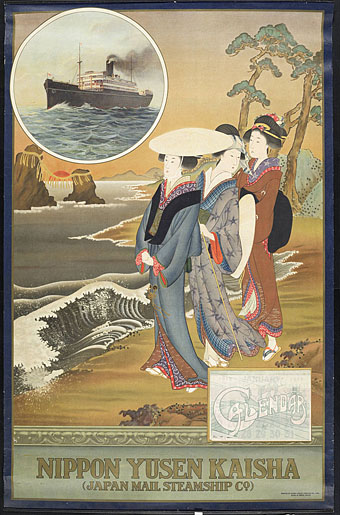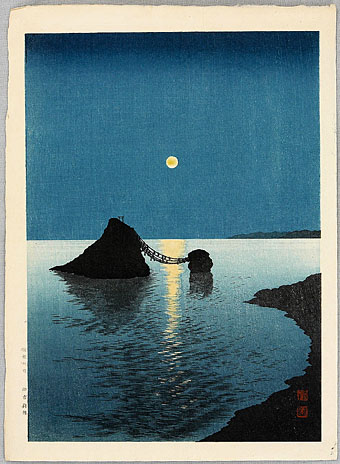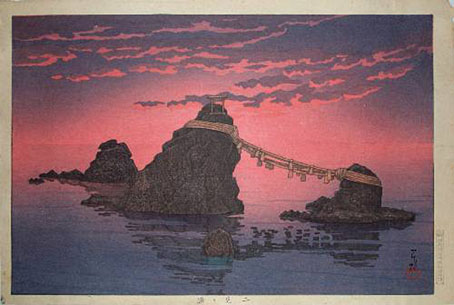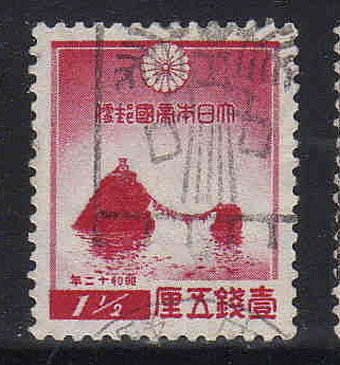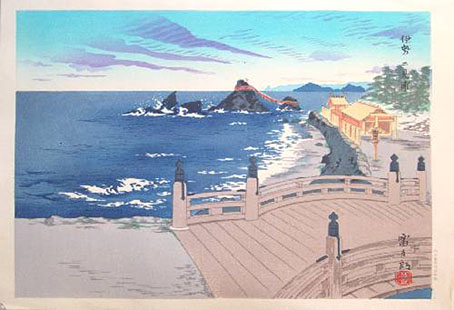Dawn at Futamigaura (c. 1832) by Kunisada.
Meoto Iwa, or the Married Couple Rocks, are two rocky stacks in the sea off Futami, Mie, Japan. They are joined by a shimenawa (a heavy rope of rice straw) and are considered sacred by worshippers at the neighboring Futami Okitama Shrine (Futami Okitama Jinja). According to Shinto, the rocks represent the union of the creator of kami, Izanagi and Izanami. The rocks, therefore, celebrate the union in marriage of man and woman. The rope, which weighs 40 kilograms, must be replaced several times a year in a special ceremony. The larger rock, said to be male, has a small torii at its peak.
At dawn during the summer, the sun appears to rise between the two rocks. Mount Fuji is visible in the distance. At low tide, the rocks are not separated by water. (more)
A Company of Pilgrims from Yedo Outside a Tea House on the Hills Behind the Beach of Futami Admiring the View (c. 1795) by Katsukawa Shunzan.
Women Worshiping the Rising Sun between the Twin Rocks at Ise (c. 1803–04) by Kitagawa Utamaro.
Futamigaura (c. 1825) by Shotei Hokuji.
View of Futamigaura from Famous Places in Ise (1847–52) by Hiroshige.
Shinanoya O-han, Fukuoka Mitsugi Oba (1852) by Kuniyoshi.
Futami Bay from 36 Views of Mount Fuji (c. 1858) by Hiroshige.
Ise Futamigaura from 100 Views of the Provinces (1860) by Hiroshige II.
Futamigaura (1868) by Sadahide.
The Husband and Wife Rocks (c. 1870) by Hasegawa Konobu.
Futamigaura (1873–1876) by Takahashi Yuichi.
Japan Mail Steamship Co. Calendar (1919).
Married Rocks (1910–1930s) by Koho Shoda.
Dawn at Futamigaura (1933) by Hasui Kawase.
New year stamp for 1937.
Married Rocks at Ise Futamigaura (c. 1950s) by Tomikichiro Tokuriki.
Previously on { feuilleton }
• Waves and clouds
• Yoshitoshi’s ghosts
• Japanese moons
• The Hell Courtesan
• Nocturnes
• Henri Rivière’s Eiffel Tower

